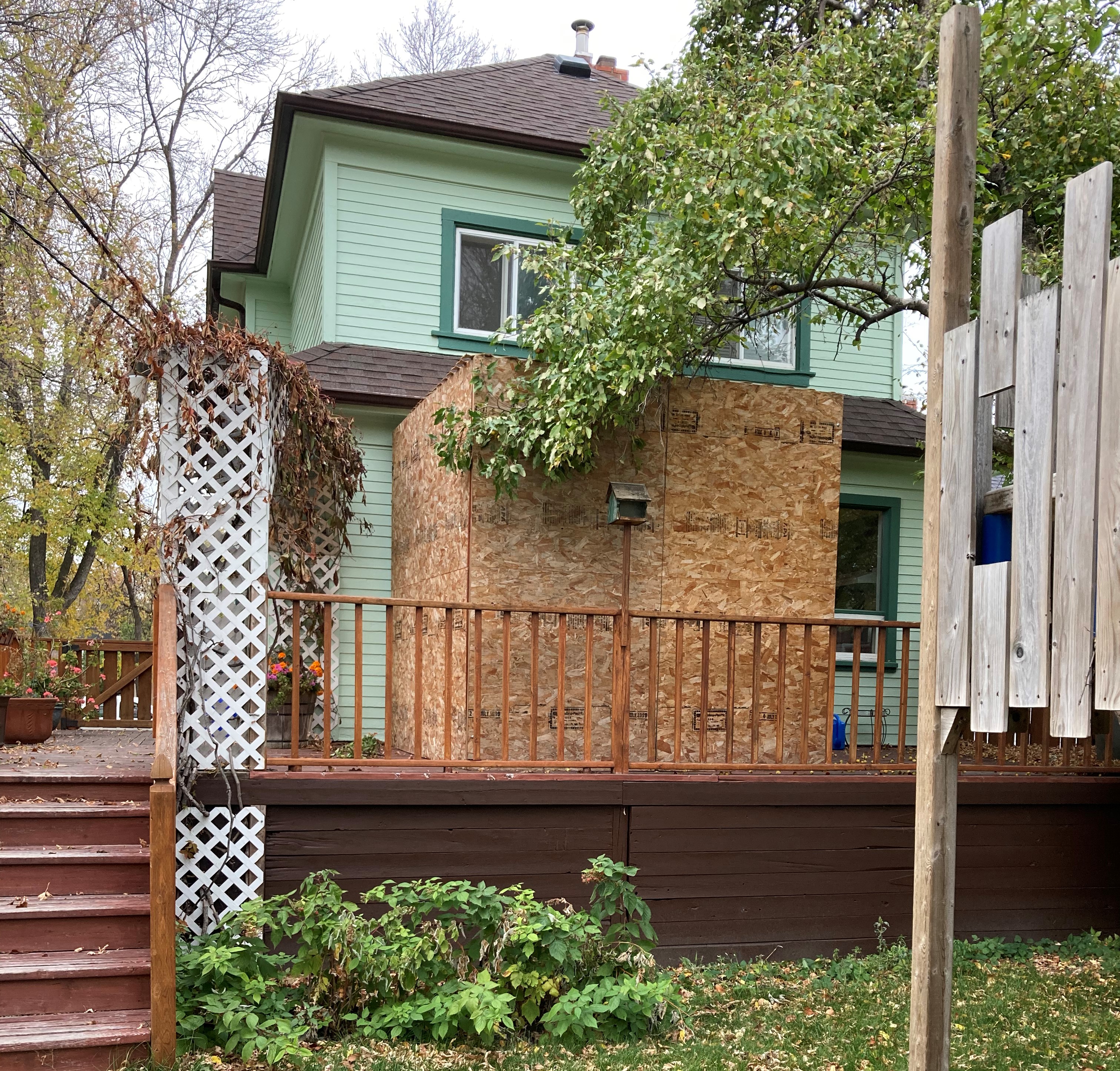This week Jewish people around the world celebrated Sukkot – the Feast of Booths, in which we build a little hut, known as a sukkah, outside our homes and do our best to live in it for a week, given the vagaries of weather. Here in Winnipeg, we are lucky any year we are able to eat dinner in our sukkah for the majority of the 7-day festival. In warmer climes, people will sleep in them as well. An Internet friend of mine in California even conceived one of her children in her sukkah! I’m guessing she has a large backyard. In some places, if you walk through a Jewish neighbourhood this time of year, you will see little huts on apartment balconies, and it is all very charming.
So why do we do this? The Torah is not clear. It mentions that it is a commemoration of the long journey from Egypt (although the people seem to have lived in tents during that time, not booths), and of course it is a harvest celebration. It is one of the pilgrimage holidays – in fact in the Talmud, whenever they mention The Holiday without any qualifier, they are referring to Sukkot. The modern-day North American holiday of Thanksgiving is based directly on Sukkot and its harvest themes.
But another undertone of Sukkot is its reminder of the precarity of life. While we build it up against the wall of our solid house, and know we can go back inside if the weather becomes unpleasant, we know that many in our world, and indeed in our city, are not so fortunate. While housing is recognised as a fundamental human right in the 1948 Universal Declaration of Human Rights, clearly our societies are not living up to this obligation. Homelessness is a modern scourge that is a direct consequence of economic and societal decisions taken in the last half century, and it will take a long time to repair. In the meantime, those of us who are not in official positions of power can do our part to help keep our neighbours housed and warm, as every person deserves to be.
While systemic problems cannot be fixed only by individual actions, it is important to be part of the solution to the best of our ability. To quote Rabbi Tarfon, you are not obligated to finish the work, but neither are you free to desist from it. Every person deserves a life of dignity, and freedom from the precarity of life on the streets is a large part of that. Donate to charities, lobby your politicians, and give thanks for your warm home.
Wishing you and yours a healthy, happy and prosperous 5784!

